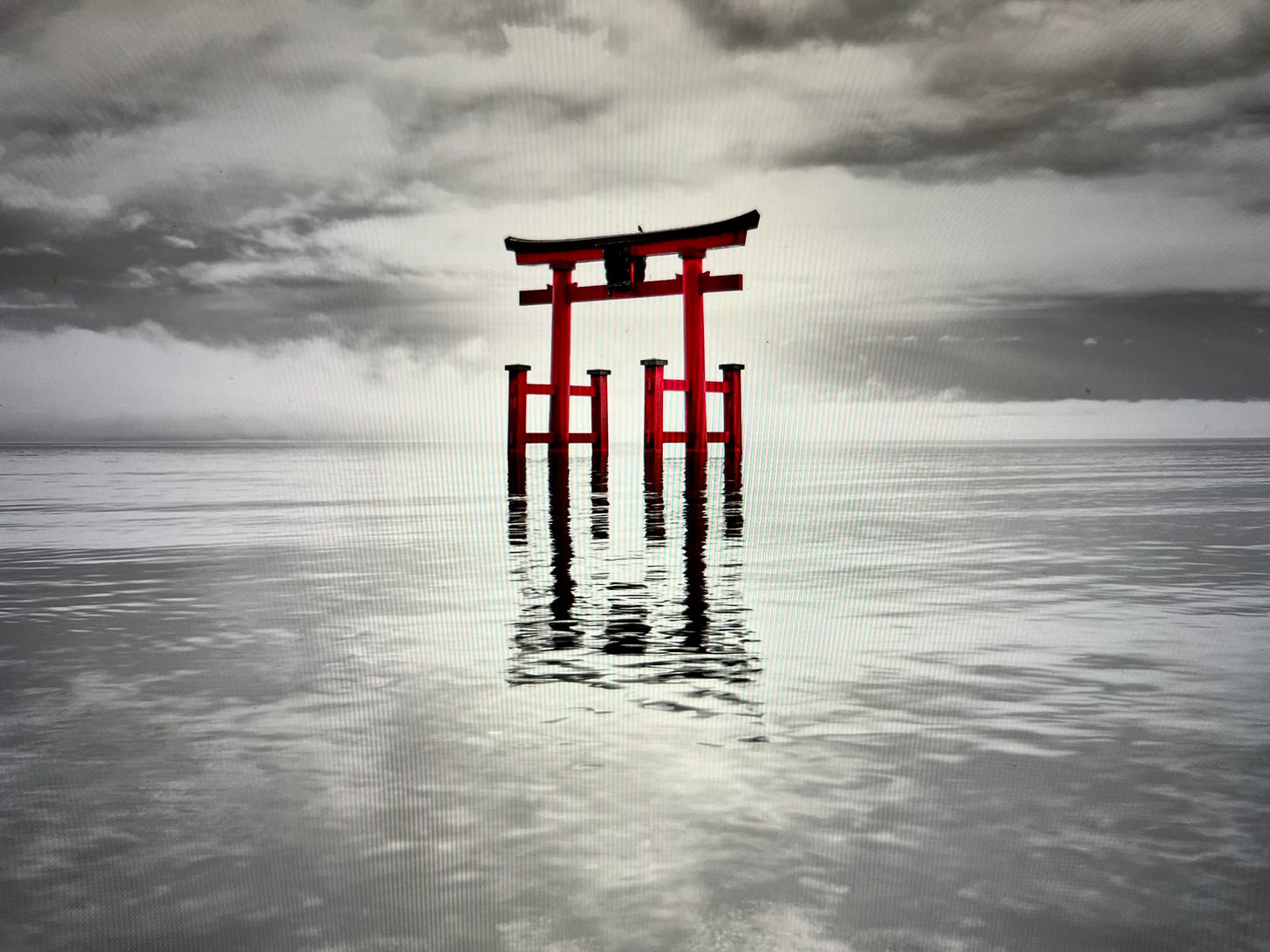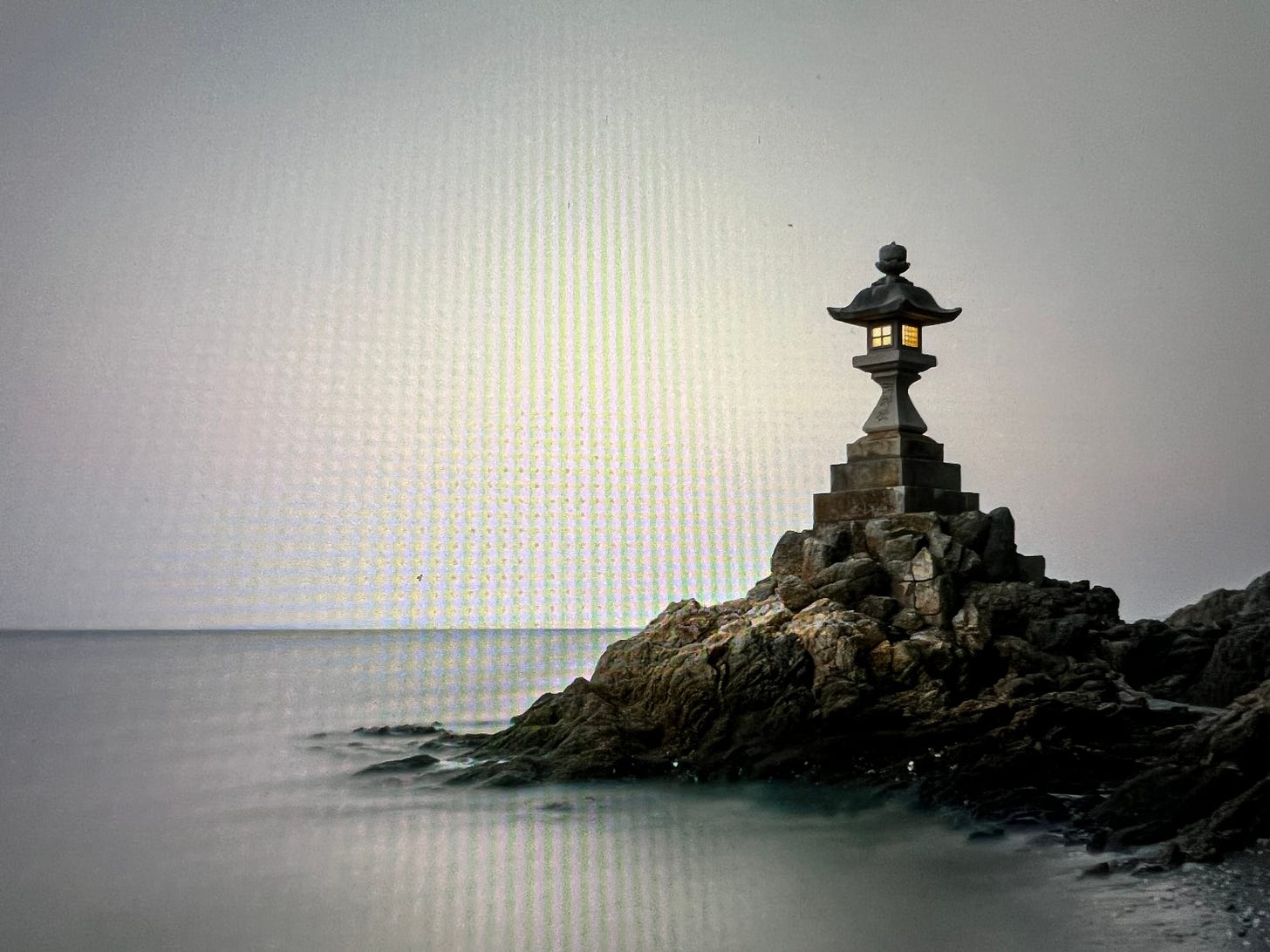Story. Place. Loss
The Future Does Not Fit in the Containers of the Past. Edition 72.
Earlier this week, Joan Didion passed away at the age of 87.
She was an accomplished screen writer, novelist, journalist, and essayist who sculpted sentences that combined precise words infused with feeling.
Three themes that echoed through her work were that of story, place, and loss.
As we end 2021 Joan Didion’s writings can help us understand the time and place we are in, understand the story of our lives and find ways to adjust to ways of living that seem to be lost to the passing of time.
The the only thing predictable in the future is going to be the constant unpredictability in a world of rapid technological change, a million battling narratives, demographic shifts, the elastic nature of what work and careers might be and the vast internal and external migrations taking place around the world.
Joan Didion was prescient in noting that we may find succor in story, place and dealing with loss.
The importance of narrative.
Joan Didion’s most famous sentence might be “we tell ourselves stories in order to live”
In many ways each of us is a compilation of stories who intersect with other people who are compilations of stories and when we meet it often like splicing two separate films into new stories about us versus just a story of you and me.
Today amidst a timeline of stories, algorithmic stories, curated stories, and embellished to pixel perfection stories, we hunger for stories real, relevant and resonating that help us make sense of our lives and the world around us.
And while our internal story telling brings order and narrative and helps us make sense of our disconnected moments and find ways to resurrect and re-invent ourselves, we can also lose our bearing and sense of reality with some stories.
The critic Michiko Kakutani noted “one of the recurrent themes in all Didion’s books, both fiction and nonfiction, is Americans’ penchant for reinventing themselves, their belief in fresh starts and second acts — a faith, on the one hand, that helped settle this country and fueled the American dream, and yet, on the other, has resulted in rootlessness and anomie, the discarding of personal and public history. Narratives, Didion suggests, can provide order, but that order can also be an illusion — or, worse, in the case of political spin masters, a disingenuous connecting of the dots meant to sell false gods and shoddy goods.
Stories are neither good nor bad but what they teach us and how we incorporate them into our lives makes them so.
The influence of place.
Confucius said “No matter where you go, there you are”
But even if we take our old selves to new places, we believe that a change of scene can mean a potential change of self.
Place defines most people. We are defined by where we were born, brought up and where we live.
Some people cannot wait to leave where they are while others pine to return from where they came. Others move from place to place in quest of fame, fortune, family and more.
If life is a journey through time and space in search of meaning, place plays a key role.
We often leave a place to go somewhere else to re-invent ourselves and begin with a fresh sheet of paper
Joan Didion was forged in California which has always lingered in the imagination as where one goes to become something else.
To play a new role.
Of California, Joan Didion wrote “We believed in fresh starts. We believed in good luck. We believed in the miner who scratched together one last stake and struck the Comstock Lode.”
And all of us may have our internal or external California.
But in the end, she believed it was not continuously leaving but staying and putting down roots that mattered.
It is as much as what we bring to a place and make of it as it makes of us.
“A place belongs forever to whoever claims it hardest, remembers it most obsessively, wrenches it from itself, shapes it, renders it, loves it so radically that he remakes it in his own “
And true contentment comes down when one finds a place, put down roots, and stays to fix whatever goes wrong.
“You have to pick the places you don’t walk away from.”
One does not only need courage to leave a place but courage to stay.
The reality of loss.
If there are three realities to life they are learning, love and loss. Not everybody succeeds at learning or love, but everybody gets a graduate degree in loss and a doctorate when people very close die.
Joan Didion wrote two books on the loss of her husband “The Year of Magical Thinking” and her daughter “Blue Nights” which are read by many dealing with loss.
She wrote of the fragility of life noting that her husband died while eating dinner: “Life changes fast. Life changes in the instant. You sit down to dinner and life as you know it ends” and the loneliness afterwards :“A single person is missing for you, and the whole world is empty.”
And as time moves forward and people, places and hopes come and go people are shaped by what is no more.
“We are imperfect mortal beings, aware of that mortality even as we push it away, failed by our very complication, so wired that when we mourn our losses we also mourn, for better or for worse, ourselves. As we were. As we are no longer. As we will one day not be at all”
But in the end Didion notes we go on by forging new stories and finding new places and begin forgetting.
“We forget all too soon the things we thought we could never forget. We forget the loves and the betrayals alike, forget what we whispered and what we screamed, forget who we were.”
But one must forge ahead…
“Do not whine...Do not complain. Work harder. Spend more time alone.”
And to college graduates a few years ago she made the case for living deeply…
“I’m not telling you to make the world better, because I don’t think that progress is necessarily part of the package. I’m just telling you to live in it. Not just to endure it, not just to suffer it, not just to pass through it, but to live in it. To look at it. To try to get the picture. To live recklessly. To take chances. To make your own work and take pride in it. To seize the moment. And if you ask me why you should bother to do that, I could tell you that the grave’s a fine and private place, but none I think do there embrace. Nor do they sing there, or write, or argue, or see the tidal bore on the Amazon, or touch their children. And that’s what there is to do and get it while you can and good luck at it.”
Photography by Team Hocking.
If you are one of the 25,000+ weekly readers discovering this because of a social media post or a forwarded email please join nearly 12,000 subscribers to receive more writing like this every Sunday for FREE at rishad.substack.com .
Rishad’s workshops on eight different topics (Future, Change, Leadership, Growth, Re-Invention, Selling, Re-thinking Organizations for the Future of Work and Talent Beyond 2022) are customized and combined for each company and delivered live, virtually, interactively and globally to turbo charge the potential of people. Unleash, upgrade and unfurl your key competitive advantage in ways that are fast, have force and are financially prudent . More at https://rishadtobaccowala.com/workshop





So beautiful, deeply touched by this one, so many things to learn here, thank you Rishad for writing this one!!
"Confucius said 'No matter where you go, there you are'"
I learned this the hard way years ago when I first moved to Jerusalem for a period of time. I thought I would change for the better immediately. Over time, I did change. Whether for good or bad, the place changed me. It was a powerful lesson in how where you are affects you.